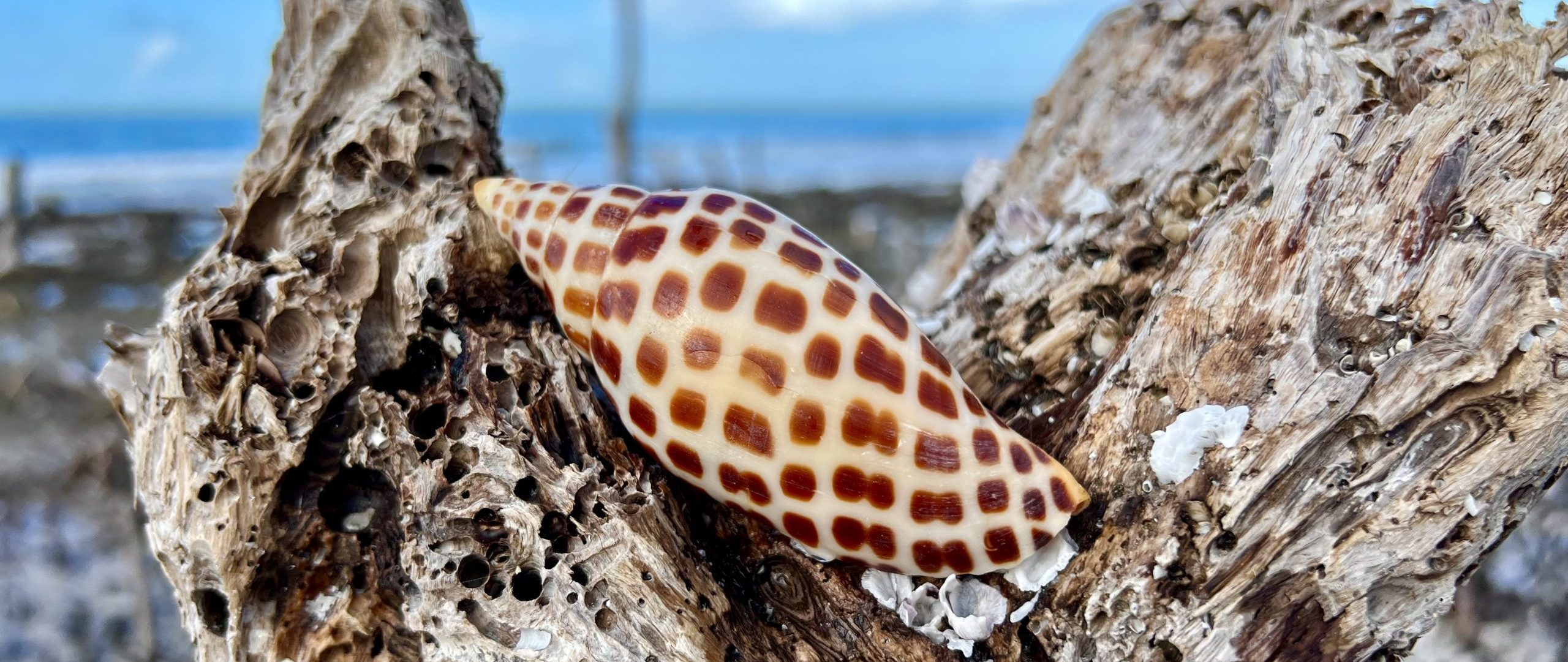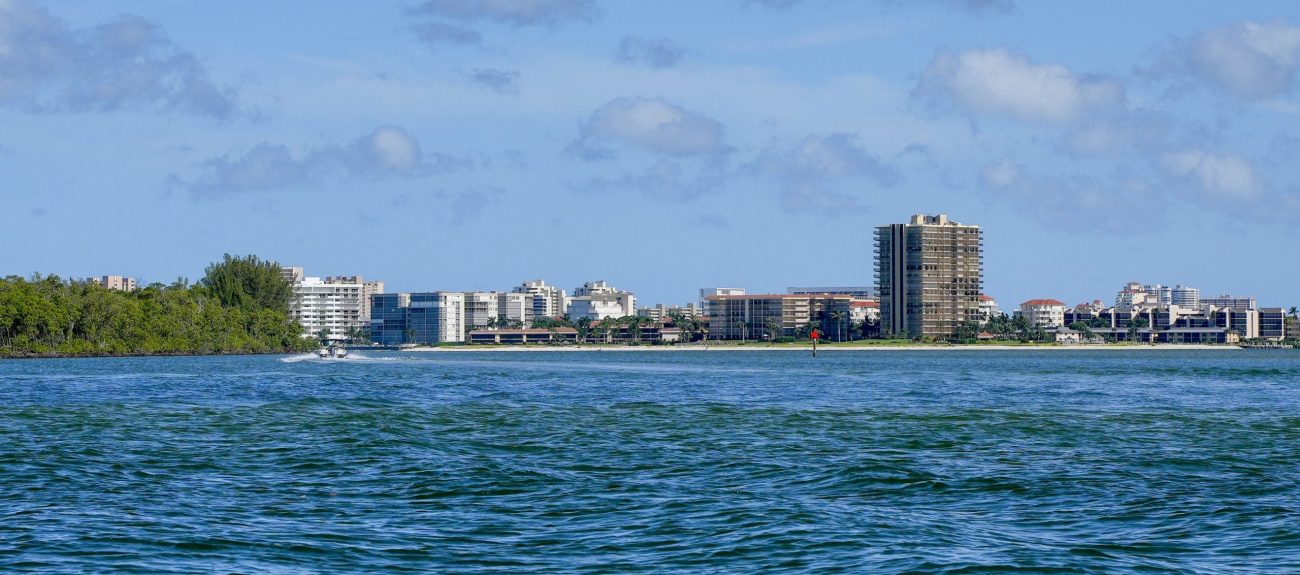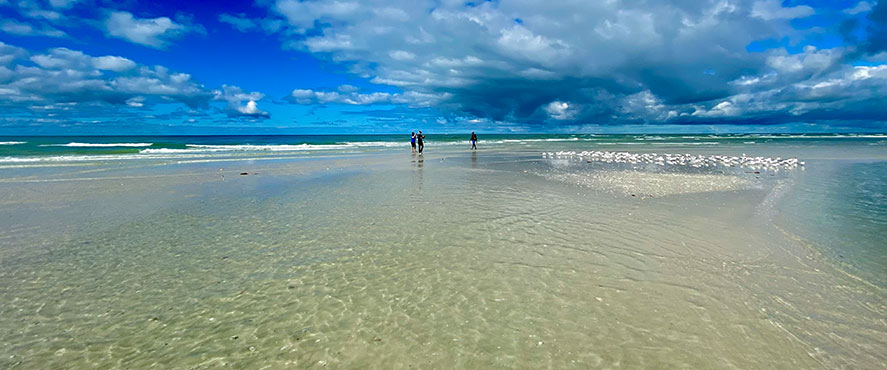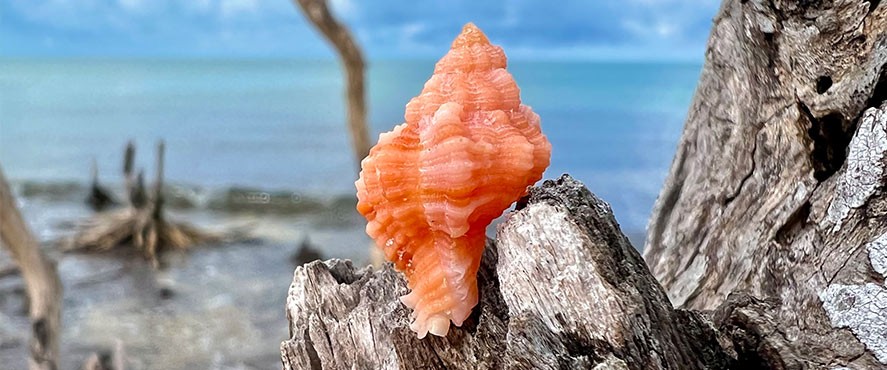Are you ready to increase your chances of finding the rare and highly sought after Junonia shell?
At Everwater Charters & Tours, our experienced guides will take you to some of the best shelling beaches the Ten Thousand Islands has to offer. From there, you can explore paradise and have a chance to find the elusive Junonia shell!
In this article, we will be explaining the characteristics of the Junonia shell, what makes it so rare, and provide tips for increasing your chances of finding one.
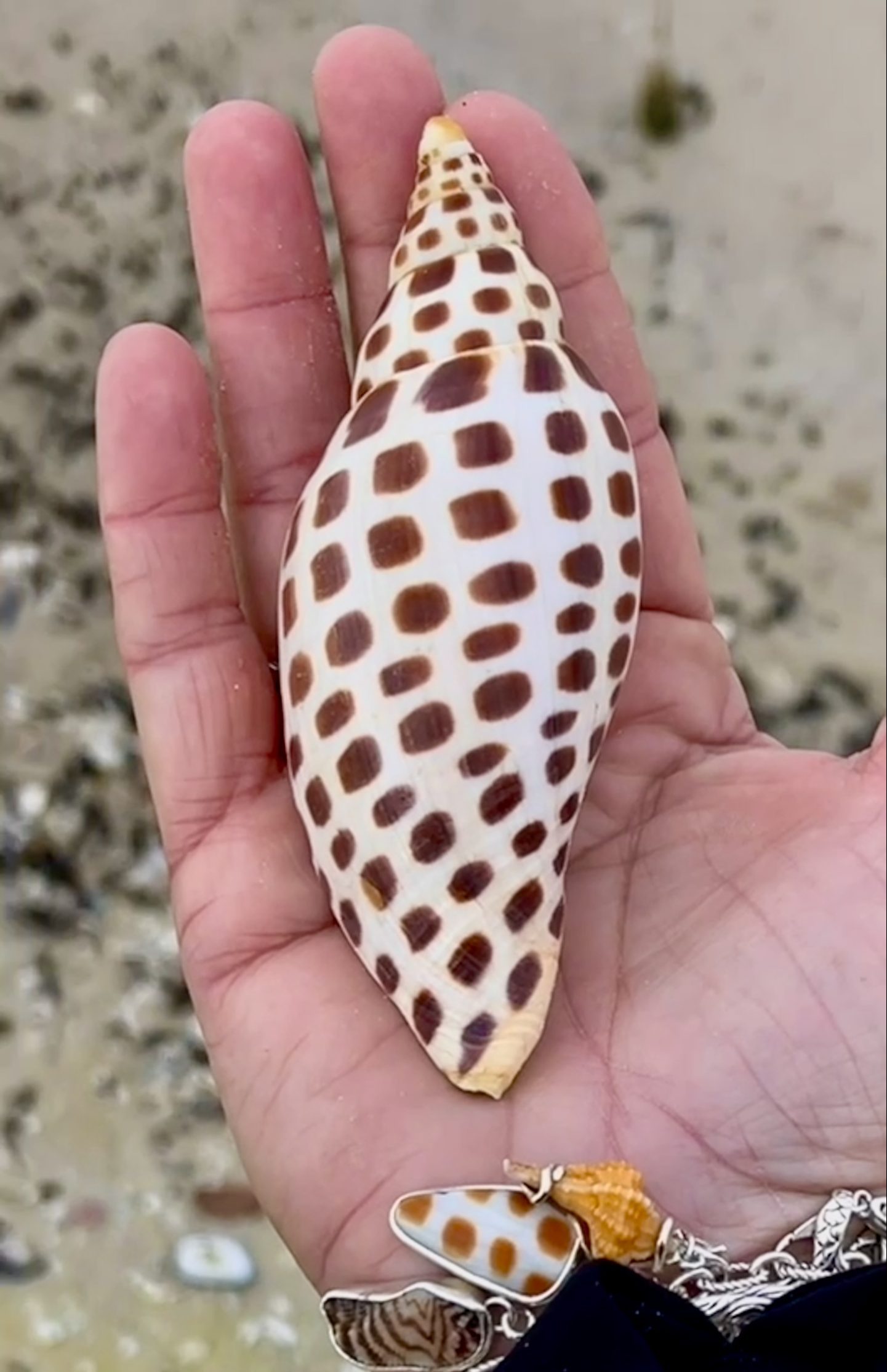
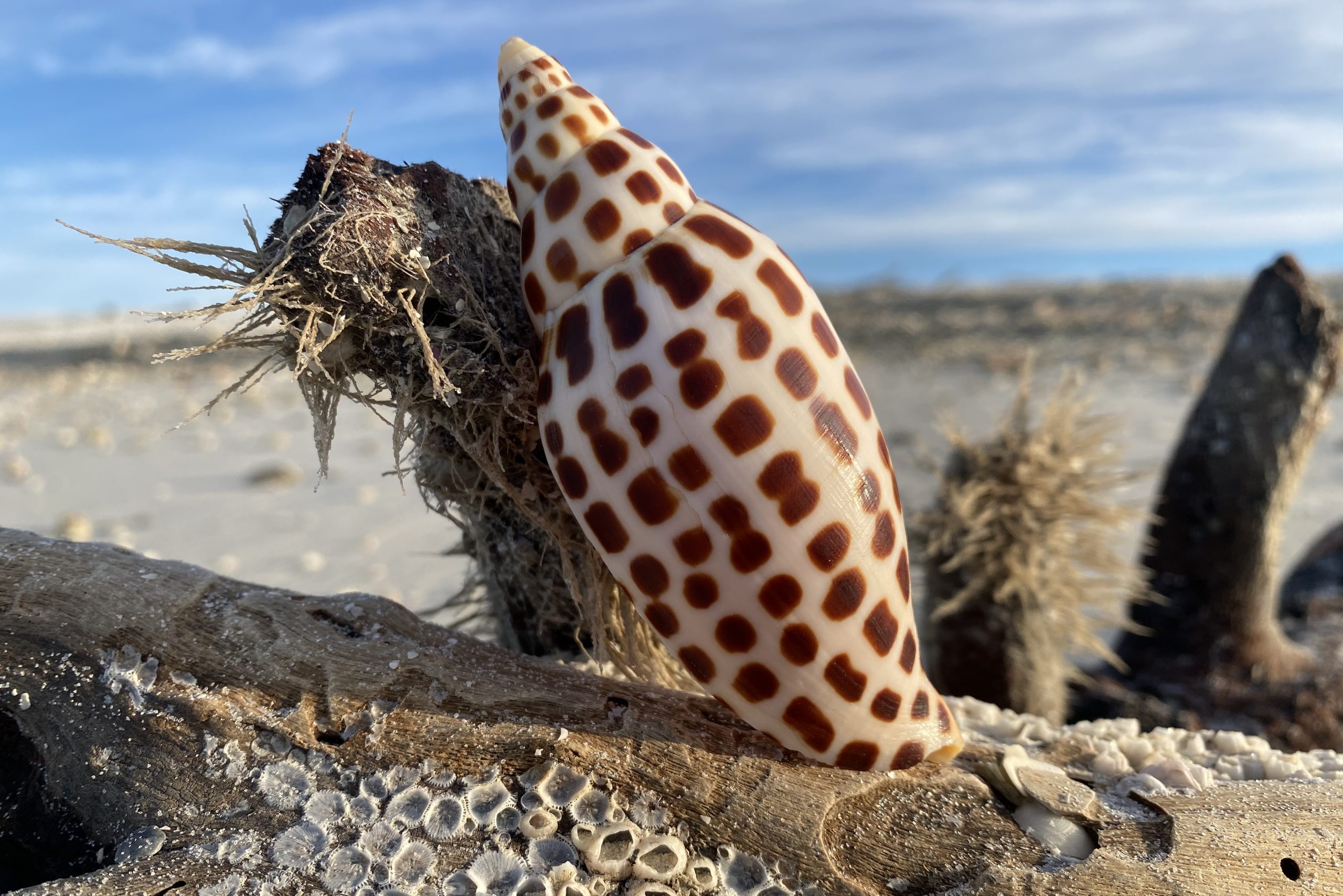
What is a Junonia?
The Junonia is marine gastropod. It is a species of large sea snail. The Junonia is a medium-sized shell that is usually around three to four inches in length. The scientific name for the Junonia is called Scaphella Junonia. The species is named after the ancient Roman goddess Juno.
The shell has a distinctive cream spiral pattern with dark brown spots. Due to its unique coloring and rarity, the Junonia is highly prized by collectors and beachcombers alike. It is a shell that is only found in certain locations, making it even more valuable!
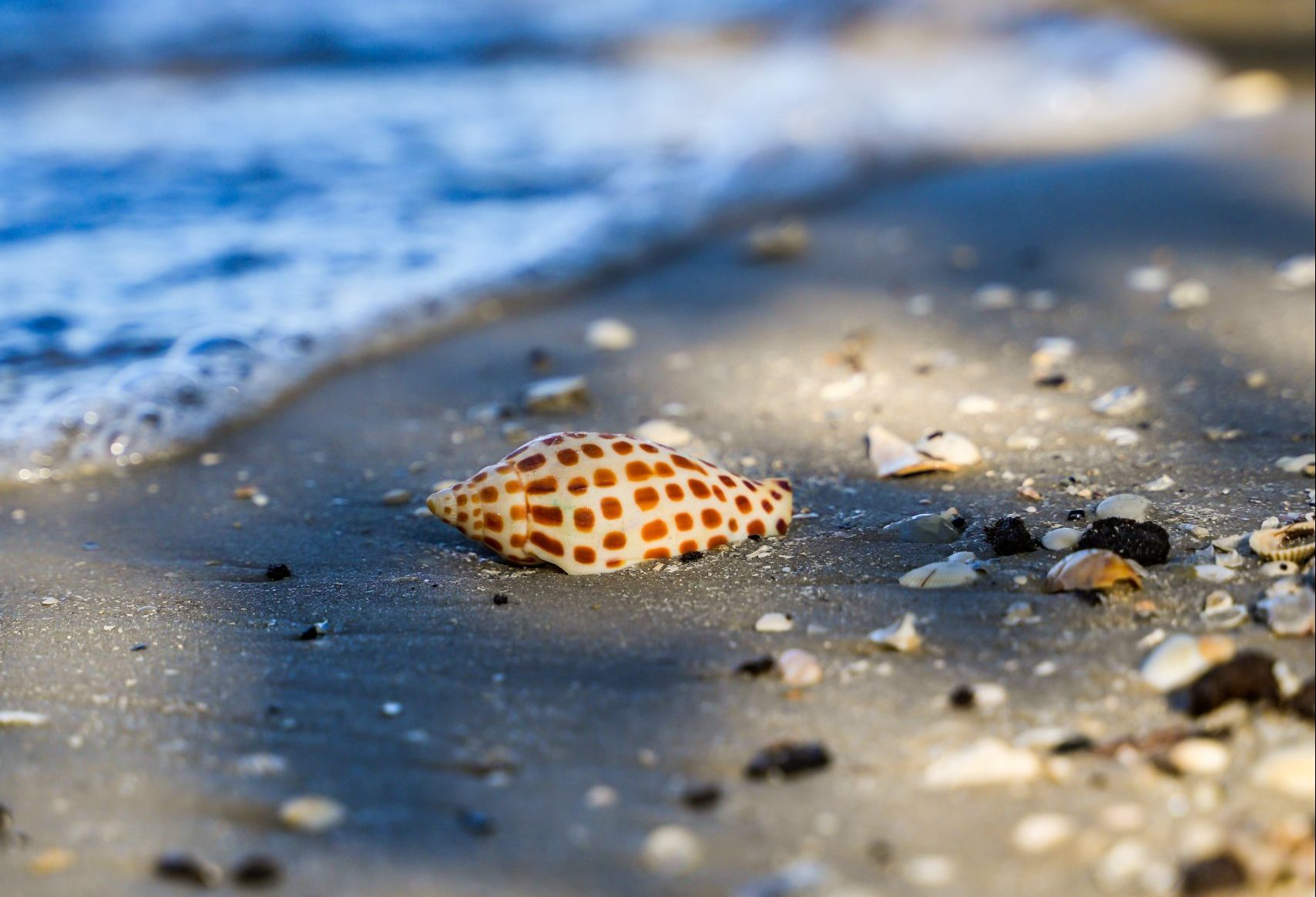
One Of The Rarest Shells On Earth
The Junonia Shell is considered rare due to its limited distribution and elusive nature. The Junonia shells live in depths of the ocean between 60-300ft. It takes heavy wave action and strong currents to wash them ashore. Did you know that ten miles out into the Gulf Of Mexico is only 45Ft deep? An interesting perspective as to how far a Junonia can travel. Finding a Junonia Shell intact is considered a remarkable achievement in the world of shell collecting. When we find a Junonia on our shelling tours, we cant help but do a little happy dance!
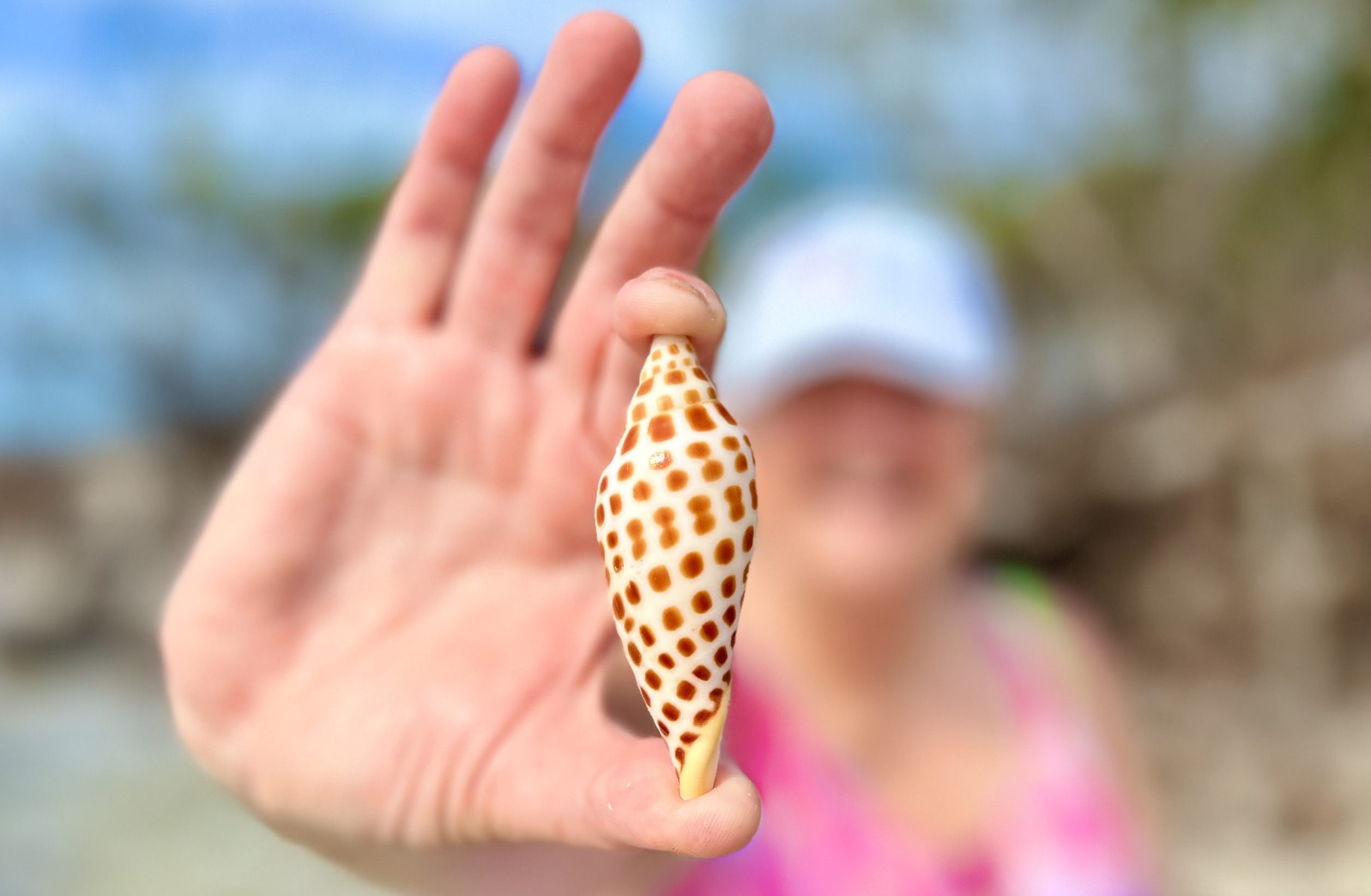
Expert Tips On Finding A Junonia
Junonia shells are highly prized by collectors and beachcombers alike for their distinctive markings and unique beauty. If you’re looking to find the rare Junonia shell, here are a few tips below to help you on your search.
- Know where to look: Junonia shells are typically found in the warm waters of the Gulf of Mexico, particularly along the coast of Florida. You will want to look for beaches that have plenty of shell deposits. The Ten Thousand Islands is a prime location to find a Junonia, especially after a storm.
- Check the tides: Junonia shells are more likely to wash up on the shore during low tide, when the water is receding and leaving behind more shells on the beach. Check tide charts for your area and plan your beachcombing trip accordingly.
- Be patient: Finding a rare Junonia shell can take time and persistence. Keep your eyes peeled for any unique markings or shapes that could indicate a Junonia. Remember, half the fun is in the search!
- Local Knowledge: With the help of a local guide, you will be increasing your chances of finding a Junonia shell. In the Ten Thousand Islands region, there are specific zones where Junonia shells are more likely to be found. A local guide who is familiar with the area can lead you to these prime locations. They can also enhance your overall experience by sharing their knowledge of the area’s wild life and ecosystem.
How Do You Want To Explore SWFL?
ENJOY 10% OFF YOUR FIRST ECO TOUR. USE PROMO CODE: ECOTOUR10

